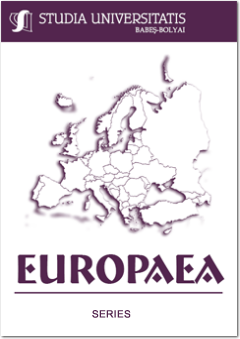ROMANIAN SOCIAL MOVEMENT: BETWEEN REPOLITICIZATION AND REINFORCEMENT OF THE STATUS-QUO (2012-2017)
ROMANIAN SOCIAL MOVEMENT: BETWEEN REPOLITICIZATION AND REINFORCEMENT OF THE STATUS-QUO (2012-2017)
Author(s): Victoria StoiciuSubject(s): Politics / Political Sciences
Published by: Studia Universitatis Babes-Bolyai
Keywords: social movements; austerity; depoliticization; anti-system discourse; emancipation.
Summary/Abstract: The article states that the social movement that emerged in Romania in 2012 is part of the global anti-austerity movement. It proposes the movement’s analysis in the key of Karl Polanyi’s theory of double movement, portraying it as a counter-movement opposing the third way of marketization, which involves commodification through dispossession of access to water, land, air and other free public goods. The articles shows how the movement, which started as an anti-system protest articulated a series of claims that contested the post-communist consensus and revealed some fundamental conflicts of the society, obscured and mystified by the dominant power structures. It demonstrates that the social movement’s anti-system agenda had a powerful repoliticization potential and announced a new discursive regime challenging the hegemonic discourse, which uses depoliticization tactics for maintaining the existing power structures. The article describes how in parallel to the anti-system discourse the social movement accommodated an anti-governmental narrative that became dominant in the most recent protests of 2017, diminishing the repoliticization and, thus, the emancipatory potential of the movement.
Journal: Studia Universitatis Babes-Bolyai - Studia Europaea
- Issue Year: 62/2017
- Issue No: 3
- Page Range: 177-196
- Page Count: 20
- Language: English

